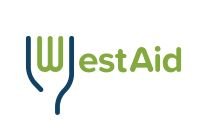About
History
WestAid was formed in February 1985 after a group of pastors in our community came together with the same issue — the people in their community were hungry. WestAid was established under the Westside Ministerial Alliance and in 2001 became a stand-alone nonprofit 501 (c) (3) organization (EIN # 75-2691040).
Initially, WestAid was housed in Arlington Heights Christian Church. After a couple of years, we relocated to Ridglea Presbyterian Church, where we remained until 2000. Beginning in 2000 we were located in the JPS Viola Pitts Como Clinic for 12 years. In October of 2012, we moved to our current location at 7940 Camp Bowie West. This space has allowed us more visibility, easier access, more space, and more flexibility for hours of operation and volunteer opportunities.
The need for what we do has grown every time we have moved, and in 2019, we felt like it was time to start looking for a bigger location. A location that would allow us to offer more resources and allow us to better serve the families that come through our doors. In 2020 the COVID-19 Pandemic brought our relocation project to a screeching halt. Two years later we started that search again. To learn more about our relocation journey check out our relocation tab!
Mission Statement
Aiding people to fulfill their right to basic material resources necessary to sustain life.
Vision Statement:
WestAid is a caring ministry in Southwest Tarrant County elevating by empowering families and increasing food security through support, engagement, and education.
Core Values:
• Dignity: We acknowledge the inherent worth and self-esteem of each individual.
• Respect: We believe human beings were created in the image of God and should be treated with respect.
• Stewardship: We are called to be good stewards of God’s creation, and to obey directives to feed the hungry.
• Service: We are committed to serving the public with compassion, integrity, and empathy.
• Diversity: We respect and welcome all cultural/ethnic backgrounds and varying schools of thought.
• Collaboration: We believe that to achieve a food-secure community, we must engage the community as a whole, building a strong community support system.

